World News

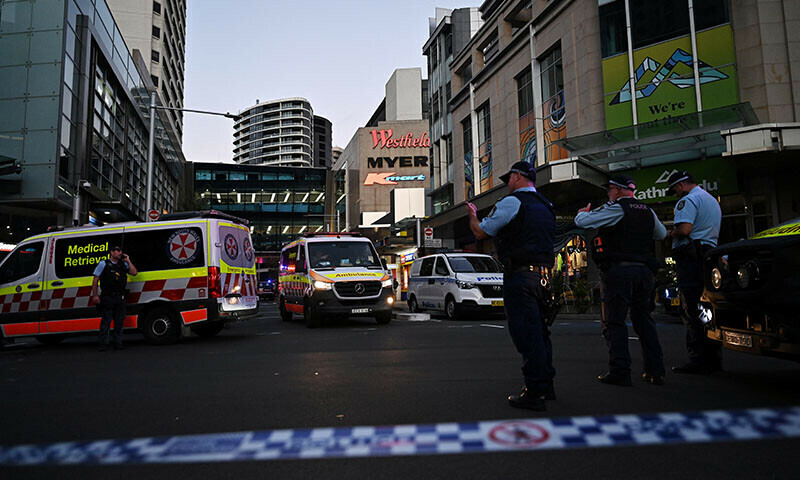
Australia’s prime minister on Tuesday suggested a visiting Frenchman who heroically fended off a knife-wielding Sydney mall attacker using only a bollard could be offered citizenship.
Damien Guerot has been dubbed “bollard man” and a “hero” of Saturday’s attack that killed six people, including a Pakistani, and wounded a dozen more.
Prime Minister Anthony Albanese singled Guerot out for praise on Tuesday, thanking him for his “extraordinary bravery” in confronting Joel Cauchi on an escalator and preventing the 40-year-old attacker from reaching more victims.
“I say this to Damien Guerot who is dealing with his visa applications, that you are welcome here, you are welcome to stay for as long as you like,” Albanese said.
“This is someone who we would welcome becoming an Australian citizen, although that would of course be a loss for France. We thank him for his extraordinary bravery.”
“It says a lot about the nature of humanity at a time when we are facing difficult issues, that someone who is not a citizen of this country stood bravely at the top of those escalators and stopped this perpetrator from getting onto another floor and potentially inflicting further carnage on citizens,” Albanese said.
Australians have been shocked by the Saturday attack that took place in a busy shopping mall in the city’s eastern suburbs.
Five women and one Pakistani security guard were killed during the rampage, which has not been blamed on terrorism.
Police are investigating whether Cauchi, who had a history of mental illness, targeted women specifically.
But Australians and Albanese took some succour from strangers aiding each other during the attack and from the bravery of policewoman Amy Scott, who acting alone, tracked Cauchi down and shot him dead.
“I think that on Saturday we saw some of the best of human character at the same time as we saw such devastating tragedy,” Albanese said.
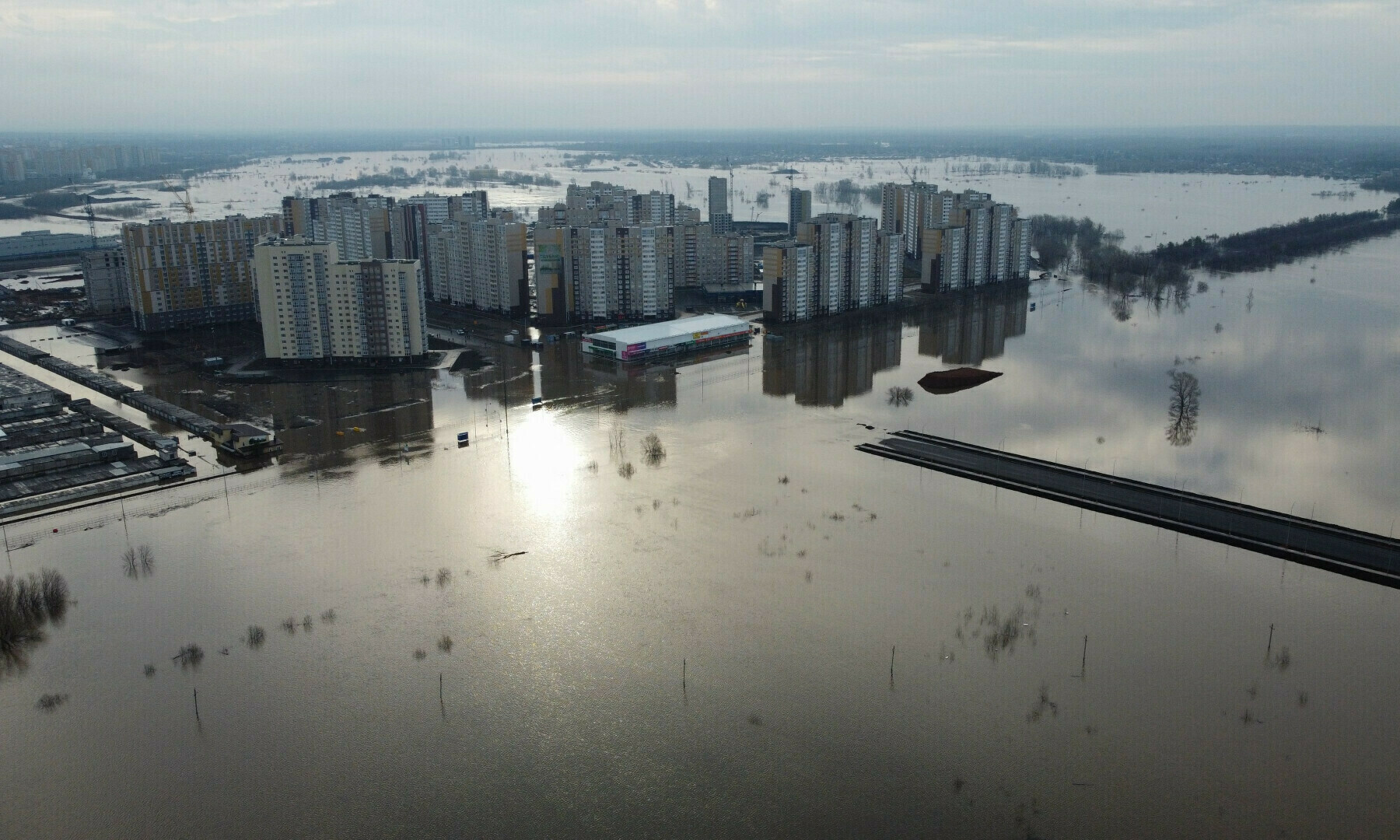
MOSCOW: Floodwaters in southern Russia on Sunday threatened to submerge thousand more homes in the Kurgan region, where the governor predicted a “very difficult situation” in the coming hours.
There is widespread flooding in the Russian Urals regions and neighbouring Kazakhstan, caused by melting ice swelling rivers, exacerbated by heavy rainfall.
In Kazakhstan, more than 107,000 people have been evacuated from their homes, while in Russia almost 40,000 homes have been flooded, TASS state news agency reported.
Spring flooding is a regular occurrence but this year it is much more severe than usual. Kazakh President Kassym-Jomart Tokayev said earlier this month that this was the country’s worst natural disaster for the last 80 years.
The floods have already submerged 34,000 homes in Russia’s southern Orenburg region, due to the rising Ural River.
Journalists on Saturday saw residents being evacuated in boats and police vehicles in the regional capital Orenburg. The situation is now worsening in the Kurgan region further east.
There, the level of the River Tobol was rising fast and Governor Vadim Shumkov said “a very complex situation with rising water is forecast for tonight”. Fresh rainfall was making the situation worse, Shumkov said, and the Tobol had just risen 25 cm (10 inches) in two hours. But some were refusing to evacuate, he complained.
The Russian emergency services ministry has predicted that more than 18,000 people could get flooded out in the Kurgan region, state news agency RIA Novosti reported.
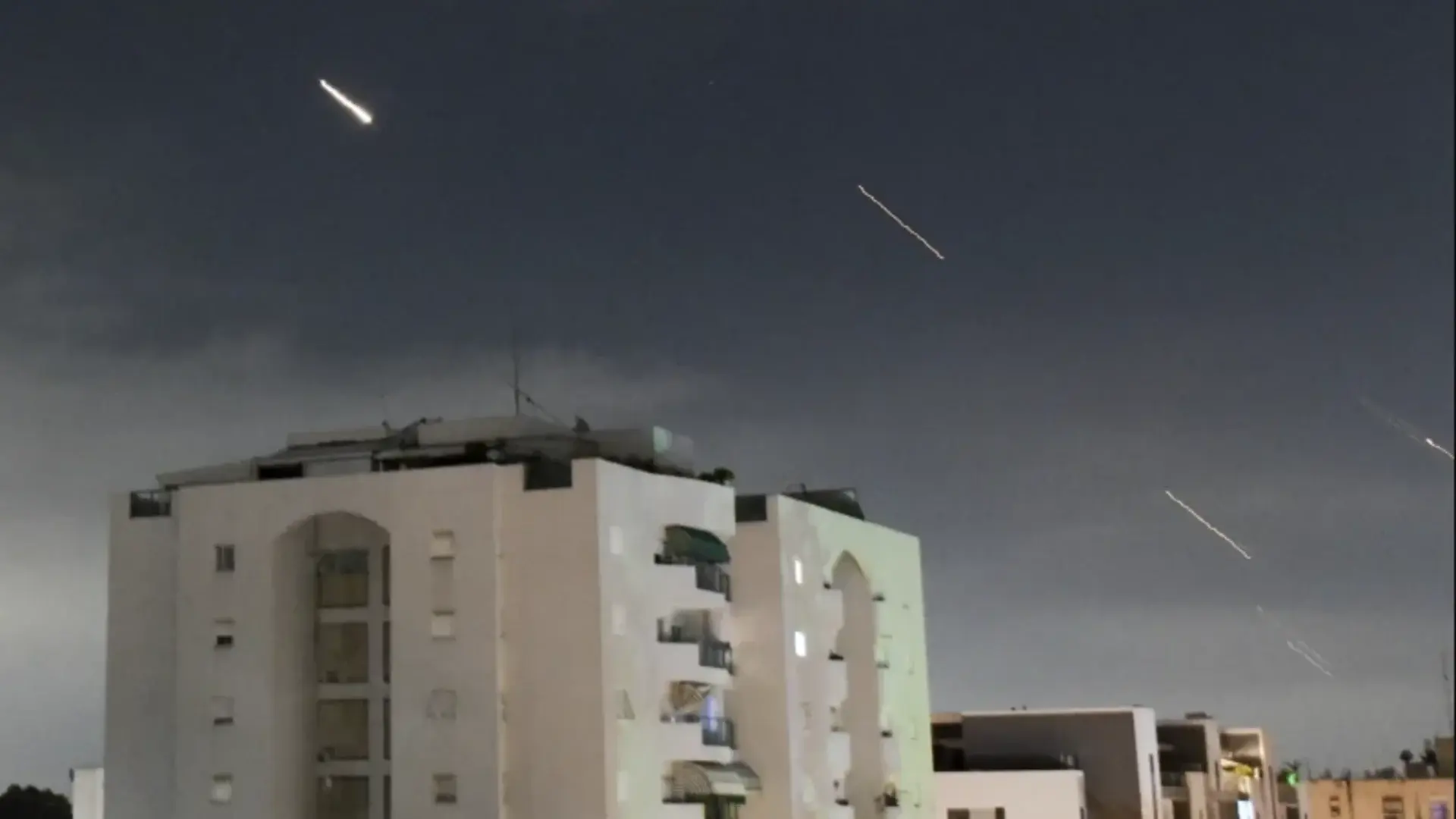
JERUSALEM (AP) Booms and air raid sirens sounded across Israel early Sunday after Iran launched hundreds of drones, ballistic missiles and cruise missiles in an unprecedented revenge mission that pushed the Middle East closer to a regionwide war.
The attack marked the first time Iran has launched a direct military assault on Israel, despite decades of enmity dating back to the country’s 1979 Islamic Revolution. Condemnation from the United Nations chief and others was swift, with France saying Iran “is risking a potential military escalation,” Britain calling the attack “reckless” and Germany saying Iran and its proxies “must stop it immediately.”
The Israeli military’s spokesman, Rear Adm. Daniel Hagari, said Iran fired scores of drones, cruise missiles and ballistic missiles — with the vast majority intercepted outside Israel’s borders. He said warplanes intercepted over 10 cruise missiles alone, also outside Israeli airspace.
Hagari said a handful of missiles landed in Israel. Rescuers said a 7-year-old girl in a Bedouin Arab town was seriously wounded in southern Israel, apparently in a missile strike, though they said police were still investigating the circumstances of her injuries. Hagari said a missile struck an army base, causing light damage but no injuries.
“A wide-scale attack by Iran is a major escalation,” he said. Asked whether Israel would respond, Hagari said only that the army “does and will do whatever is required to protect the security of the state of Israel.” He said the incident was not over, and dozens of Israeli warplanes remained in the skies.
U.S. forces downed some of the Iran-launched drones flying toward Israel, according to a U.S. defense official and two U.S. officials who spoke on condition of anonymity to discuss the matter. Israel’s military said its Arrow system, which shoots down ballistic missiles outside the atmosphere, handled most interceptions and noted that “strategic partners” were involved.
Prime Minister Benjamin Netanyahu’s office said he was speaking to U.S. President Joe Biden early Sunday. No details on their conversation were immediately made public. But Biden has said his commitment to Israel’s security is “ironclad” in the face of Iranian threats — a departure from his harsh criticism over Israel’s handling of the war in Gaza.
Iran had vowed revenge since an April 1 airstrike in Syria killed two Iranian generals inside an Iranian consular building. Iran accused Israel of being behind the attack. Israel hasn’t commented on it.
Israel and Iran have been on a collision course throughout Israel’s six-month war against Hamas militants in the Gaza Strip. The war erupted after Hamas and Islamic Jihad, two militant groups backed by Iran, carried out a devastating cross-border attack on Oct. 7 that killed 1,200 people in Israel and kidnapped 250 others. An Israeli offensive in Gaza has caused widespread devastation and killed over 33,000 people, according to local health officials.
Almost immediately after the war erupted, Hezbollah, an Iranian-backed militant group in Lebanon, began attacking Israel’s northern border. The two sides have been involved in daily exchanges of fire, while Iranian-backed groups in Iraq, Syria and Yemen have launched rockets and missiles toward Israel.
In a statement carried late Saturday by Iran’s state-run IRNA news agency, the country’s paramilitary Revolutionary Guard acknowledged launching “dozens of drones and missiles towards the occupied territories and positions of the Zionist regime.”
In a later statement, the Revolutionary Guard issued a direct warning to the U.S.: “The terrorist U.S. government is warned any support or participation in harming Iran’s interests will be followed by decisive and regretting response by Iran’s armed forces.”
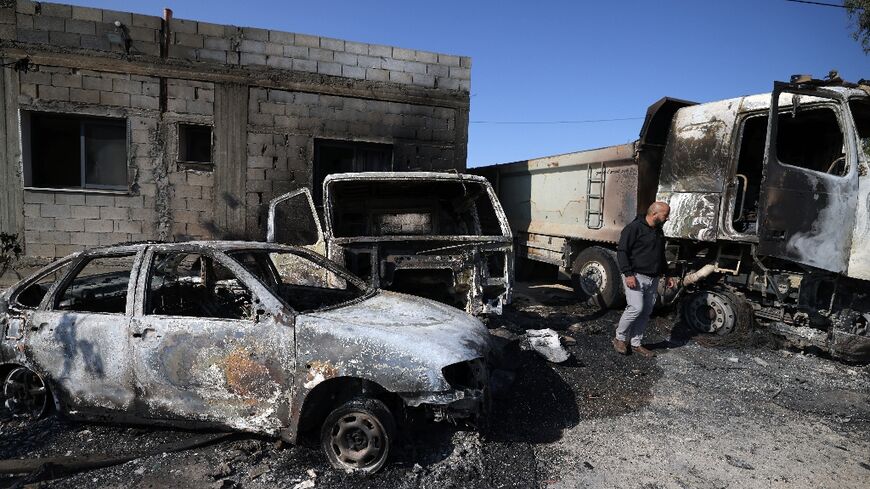
The search for a missing Israeli teenager resumed Saturday in the occupied West Bank, where settler attacks on Palestinian villages have left at least one dead and dozens injured, sources on both sides said, AFP reports.
The Israeli army said it was still looking for Benjamin Achimeir, 14, who went missing early on Friday from Malachi Hashalom, an outpost near the city of Ramallah.
With tensions already high due to the Israel-Hamas conflict in the other Palestinian territory of Gaza, Israeli security forces and hundreds of volunteers formed a huge search party to look for the teen.
Violence erupted on Friday afternoon when Jewish settlers who were part of the manhunt raided the village of Al-Mughayyir, around 500 metres west of Malachi Hashalom, according to an AFP reporter.
The settlers fired off shots and torched numerous homes and cars in the village, while residents responded by throwing stones, AFP reporters saw.
Mayor Amin Abu Alyah said “settlers raided the town with the excuse of searching for the missing Israeli boy,” adding that “the army arrived to back them up.” Arafat Abu Alia, a resident of Al-Mughayyir, said the Israeli army had told residents to gather on the outskirts of their village.
“More than 10 houses and 50 vehicles were burnt,” he told AFP.
At least one person was killed and 25 wounded, the Palestinian health ministry said on Friday.
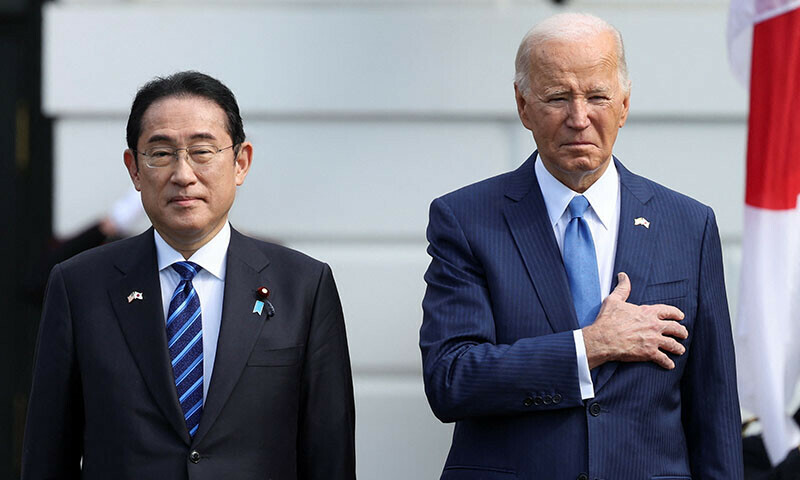
Beijing on Friday criticised the United States, Japan and the Philippines and defended its actions in the South China Sea as “lawful” after US President Joe Biden hosted a trilateral meeting in Washington.
Biden on Thursday pledged to defend the Philippines from any attack in the South China Sea at the White House summit, which came amid repeated confrontations between Chinese and Philippine vessels in the disputed waterway that have raised fears of wider conflict.
A joint statement issued by the leaders of the trio of nations voiced “serious concern” over Beijing’s actions in the South China Sea, slamming its behaviour as “dangerous and aggressive”.
Beijing claims almost the entirety of the South China Sea, brushing aside competing claims from several Southeast Asian nations including the Philippines.
On Friday, China hit out at the joint summit in Washington, with foreign ministry spokeswoman Mao Ning saying Beijing “firmly opposes the relevant countries manipulating bloc politics, and firmly opposes any behaviour that provokes or lays plans for opposition, and hurts other countries’ strategic security and interests”.
“We firmly oppose engaging in closed cliques that exclude others in the region,” Mao told a regular press conference.
“Japan and the Philippines can of course develop normal relations with other countries, but they should not invite factional opposition into the region, much less engage in trilateral cooperation at the cost of hurting another country’s interests.
“If these are not wanton smears and attacks on China, what are they?” she said.
“China’s actions in the East China Sea and South China Sea are appropriate and lawful, and beyond reproach,” Mao added.
‘Ironclad’
On Thursday, Biden told Philippines President Ferdinand Marcos Jr and Japanese Prime Minister Fumio Kishida that the United States’ defence commitments to Japan and to the Philippines are “ironclad”.
As they met around a horseshoe-shaped wooden table in the grand East Room of the US presidential residence, the US, Japanese and Philippine leaders hailed the meeting as “historic”.
Without mentioning China by name, they painted their alliance as a bedrock of peace and democracy in the Asia-Pacific region in contrast to authoritarian Beijing.
Marcos, seen as closer to Washington than his more China-leaning predecessor Rodrigo Duterte, said they shared an “unwavering commitment to the rules-based international order”.
Kishida said that “multi-layered cooperation is essential” and that “today’s meeting will make history”.
Biden, 81, also held separate talks with Marcos, 66, the son and namesake of the country’s former dictator.
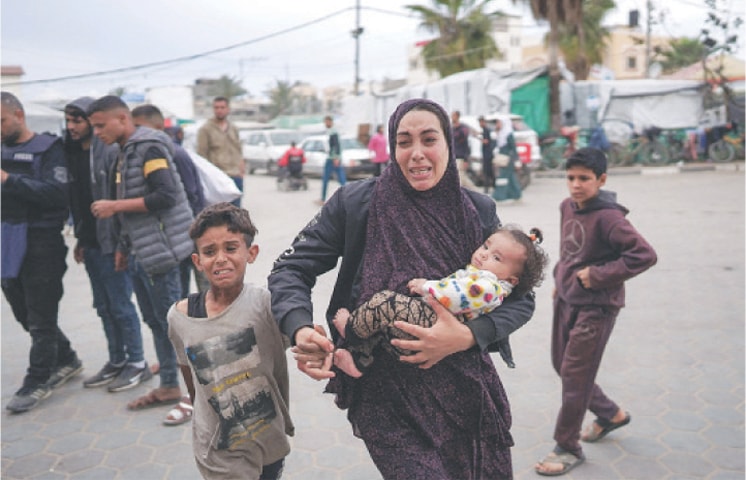
GAZA STRIP: Israel and Hamas both dampened hopes on Monday of a speedy breakthrough in Cairo talks towards a Gaza truce and hostage release deal after Egyptian state-linked media had reported “significant progress”.
As the Gaza war raged on into a seventh month, Israel is under growing international pressure to agree to a ceasefire, including from its top ally and arms supplier the United States.
Prime Minister Benjamin Netanyahu insisted on Sunday — half a year after the October 7 attack — that Israel is “one step away from victory” and has vowed to defeat remaining Hamas fighters in Gaza’s far-southern Rafah city.
On the same day, however, the army also announced it had pulled its forces out of southern Gaza, although military commanders stressed the withdrawal was tactical and did not signal an end to the war.
Rafah operations
Israeli leaders were preparing on Monday for military operations in Gaza’s southern city of Rafah, where most of the Palestinian territory’s population has fled after six months of fighting.
Defence Minister Yoav Gallant said the troops would “prepare for future missions, including … in Rafah” on the Egyptian border where almost 1.5 million Gazans live in crowded shelters and tents.
Israeli government spokesman Avi Hyman said: “I wouldn’t read too much into the fact that we’ve moved soldiers in or out of anywhere. I’ll remind everyone that we’re living in a tiny country, we can move soldiers in or out very easily and very quickly.”
The United States said it still opposed a major Israeli assault on Rafah, after Prime Minister Benjamin Netanyahu said a date for the attack was set. “We have made clear to Israel that we think a full-scale military invasion of Rafah would have an enormously harmful effect on those civilians and that it would ultimately hurt Israel’s security,” State Department spokesman Matthew Miller told reporters when asked about Netanyahu’s remarks.
“It’s not just a question of Israel presenting a plan to us. We have made clear to them that we think that there is a better way to achieve what is a legitimate goal, which is to degrade and dismantle and defeat the Hamas battalions that still remain in Rafah,” Miller said.
Witnesses said that more Israeli air strikes and artillery fire hit central Gaza, including near Gaza City and in Deir al-Balah, as well as in Rafah in the south.
Amid the threats and ongoing fighting, Netanyahu has sent negotiators to fresh truce talks that started in Cairo on Sunday, joined by US, Qatari and Egyptian mediators.
US President Joe Biden sent CIA chief Bill Burns to the talks, three days after a terse phone call with Netanyahu in which Biden demanded a halt to the fighting and greater steps to help and protect Gaza civilians.
Egypt’s state-linked news outlet Al-Qahera reported “significant progress being made on several contentious points of agreement”, citing an unnamed high-ranking Egyptian source.
The Qatari and Hamas delegations had left Cairo and were expected to return “within two days to finalise the terms of the agreement”, it said, while the US and Israeli teams were also planning 48 hours of consultations.
However, Israel’s Ynet news outlet cited an unidentified Israeli official as tempering the upbeat Egyptian report and stressing that “we still don’t see a deal on the horizon”.
“The distance is still great and there has been nothing dramatic in the meantime,” the Israeli official was quoted as saying by the Hebrew-language website.
A separate senior Israeli official was quoted by Ynet as saying that “patience is needed. There is potential, but we are not there yet.”
A Hamas official said on Monday no progress was made at a new round of Gaza ceasefire talks in Cairo. “There is no change in the position of the occupation and, therefore, there is nothing new in the Cairo talks,” the Hamas official, who asked not to be named, told Reuters. “There is no progress yet.”
Another senior Hamas official told AFP that “we cannot speak of concrete progress so far”, with disagreement centred on the pace of displaced Palestinians returning to Gaza City.
Netanyahu also faced pushback from one of the far-right allies he needs to maintain a parliamentary majority and stay in power, National Security Minister Itamar Ben Gvir.
Ben Gvir warned on X, formerly Twitter, that “if the prime minister decides to end the war without an extensive attack on Rafah in order to defeat Hamas, he will not have a mandate to continue serving as prime minister”.
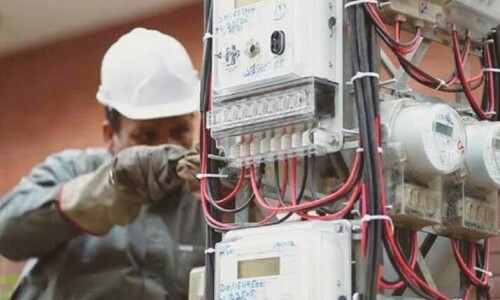
ISLAMABAD: Consumers will pay Rs4.92 per unit extra next month for electricity consumed in February, after the power regulator approved the hike as additional fuel cost adjustment (FCA).
The National Electric Power Regulatory Authority (Nepra) notified the increase on Monday. It will impact consumers of all ex-Wapda distribution companies (Discos), generating a net financial impact of about Rs45bn.
The net tariff increase because of the FCA impact would be about Rs7.51 per unit owing to its partial spillover to the upcoming quarterly tariff adjustment (QTA), as explained by the regulator during a public hearing on March 28.
The adjustment will be applicable to “all the consumer categories except Electric Vehicle Charging Stations (EVCS) and lifeline consumers”, said the Nepra’s notification.
Earlier, the Central Power Purchasing Agency (CPPA), on behalf of Discos, had sought an additional FCA of Rs4.99 per unit for the electricity consumed in February.
It claimed that the reference fuel cost for January was set at Rs4.43 per unit, but the actual fuel cost more than doubled to Rs9.42 per unit.
The additional FCA is about 113pc higher than the pre-fixed fuel cost of Rs4.43 per unit already charged to consumers in February.
After minor deductions, the regulator worked out the total per unit fuel cost at Rs9.35 and allowed Rs4.92 per unit additional FCA — 7 paise per unit lower than the Discos’ demand.
Poor fuel price calculations
It also calls into question the capabilities of the power sector bureaucracy to forecast fuel costs even for six to seven months.
The additional FCAs have remained over 80pc higher in recent months than pre-determined fuel costs notified at the start of the fiscal year.
This increase in FCA is on top of about 26pc increase in annual base tariff and another 16pc hike under quarterly tariff adjustment already in place.
As a result, consumers would continue to pay excessive bills despite lower consumption. This was despite the fact that more than 77pc share of electricity came from local resources.
The higher FCA for Feb 2024 was mainly because of the adverse fuel mix than estimated and higher domestic coal and gas prices, although imported fuel prices, including furnace oil and LNG, were lower in February, and the exchange rate remained stable.
The actual supply from cheaper hydropower and domestic coal was about 2pc and 5pc lower than reference estimates, respectively, while imported coal’s share was also about 6pc lower.
On the other hand, the share of RLNG-based supply went beyond 20pc of the national grid, although it was estimated to be zero.
The nuclear supply to the grid was also lower than the reference estimate.
‘Concerns’ at low demand
Besides, the regulator expressed serious concerns over the constantly declining electricity demand.
Till February 2024, the overall demand had reduced by around 12pc compared to reference projections.
“This decrease in sales would consequently result in higher quarterly adjustments, leading to further increase in tariff”, the regulator noted and directed the CPPA and Ministry of Energy to analyse the impact of ending commercial-based load-shedding and submit a proposal to improve the demand.
It was also highlighted that currently, capacity charges constitute over 60pc of the tariff, much higher than international standards.
The regulator also asked the CPPA and the government “to evaluate the possibilities of reducing capacity charges while remaining within the legal framework”.
The Nepra also expressed displeasure that supply from wind-based power plants was being curtailed, leading to the functioning of power plants running on expensive imported fuel.
It was also observed that the Guddu Thermal Power Station was being operated on a 45pc plant factor on open cycle instead of combined cycle.
Had this plant been running on combined cycle, it would have reduced the cost of generation since it was a more efficient process.
The power regulator also noted the National Transmission and Despatch Company’s version that the constraint in the North-South corridor was due to national generation coming at the low of 7,000 to 8,000 MW, even though the system had a 27,000MW evacuation capacity.
Ironically, $655 million were spent on developing the corridor’s extension which would not be required beyond 2030 due to new hydel power plants coming in the northern region.


